Pinnacle interview with David Mylett
Pinnacle was a group from Liverpool highly influenced by groups like Pink Floyd and Hawkwind. At the same time they also enjoyed hard rock groups like Deep Purple and Black Sabbath. Their debut album, ‘Assasin’ is combination of both.
When and where were you born?
David Mylett: I was born in Liverpool 61 years ago.
How old were you when you began playing music and what was the first instrument you played?
The recorder at Junior School aged about nine or ten. I eventually got a guitar.
What inspired you to start playing music? Do you recall the first song you ever learned to play?
I first became aware of the magnificence of the guitar upon entering senior school age eleven or twelve. I taught myself, the first songs I learned was ‘Tom Dooley’, ‘House of the Rising Sun’, ‘7 Drunken Nights’ and other traditional songs I was never seen around school without my guitar from the day I got it till the day I left school.
Were you in any bands before recording your solo material?
During and after school I was in a couple of bands (Grizelda Plum and Jade) who rehearsed more than gigged. I played rhythm guitar and later on I played lead guitar playing the usual stuff of the time including Cream, Hendrix, Rory Gallagher, John Mayall, Credence Clearwater Revival with some good and some bad playing, all the time learning. Around early 1972 I joined a band called Fairytale. I was to replace a good friend of mine who wanted to leave (he didn’t take to playing live) he recommended me to take his place playing covers of Wishbone Ash, and again Rory and Cream stuff. The main lead guitar player was called John Cross. He was tremendous. He could play like Tony Iommi from Black Sabbath, and over the coming weeks Hawkwind and Sabbath numbers were kicked around during our rehearsals. I quickly realized they didn’t need another guitar –but they did need a keyboard so I said I would get one and set about learning it in earnest. At around this time a DJ Friend of mine and an electronics wizard made me a basic synth (which was more of a signal generator than anything) together with an old spring reverb spring put through a wah wah pedal I sent the signal through an echo unit for the Hawkwind covers and rubbed the spring of the reverb with a lipstick top and swelled the wah wah which achieved a very effective wind sound, this was also good for our version of the Pink Floyd number ‘One of These Days’. The spring was eventually replaced with a recording on tape from a sound effects recorded as the spring broke after a few months of gigs. We changed the name of the band to Uncle Harry (after the Pink Fairies Song Uncle Harry’s Last Freak Out). Playing covers from Pink Floyd, Hawkwind, Pink Fairies, Black Sabbath and Uriah Heep. We gigged around the clubs and colleges of the Liverpool area playing the Cavern Club ten times just before it shut down in March, 1973. Uncle Harry’s star moment was as support to Judas Priest when they played there. The band split in May/June 1974 as John Cross was going away to University and I had secured a position in Pinnacle as the keyboard player.
There are some recordings of Uncle Harry playing at a live rehearsal on Soundcloud including our version of Pink Floyd’s ‘One Of These Days’. I have recorded some solo material but they are demo’s used to learn how to record with Cubase and digital home recording equipment. There is a recording on YouTube of me and a drummer friend Phil Furlong doing a version of ‘Telstar’ in Amazon studios Liverpool early 80’s but that’s it really. I play everything except the drums. Phil Furlong does the drums and backing vocals. This short video was made by Phil as a tribute to me. Very nice of him.
“The feel and general production of the sound was my Pink Floyd, Hawkwind influences”
When did you begin writing music? What was the first song you wrote? What inspired it and did you ever perform the song live or record it?
I played about with bits and pieces of things, riffs and chord sequences and had them in my head. I never really knew just what to do with them and when I joined Pinnacle I sort of learned by working together with Paul Thomas (the lead player and main composer) indirectly, whilst we were working how to construct music. I should mention at this point that I only ever chipped in with a few lines of lyrics to all Pinnacle songs. Most of the lyrics were written by the vocalist Owen McCann. So the first music I composed was ‘Astral Traveller’ which ended up on the ‘Assasin’ album using these bits and pieces in my head, in fact all of ‘Astral Traveller’ is comprised of three pieces of my chord sequences just put together. The guitar solo is Paul’s construction with the suggestion from me that he used plenty of echo on it. And that was it. The inspiration for the main ‘Astral Traveller’ chord sequence used under the lyrics was The Who’s song ‘Baba O’Riley’ and the chords are played in a backwards order. The feel and general production of the sound was my Pink Floyd, Hawkwind influences. Pinnacle always played this song live as it was always requested. It was in fact recorded live for the ‘Assasin’ album. All the instruments were being recorded at once in the studio, only the vocal and synth parts were done later.
You’re coming from Liverpool. Did local scene have any role in shaping you as a musician? Any local bands you liked?
Personally not really. I did like some local bands like Pleasure, and Hamster & Supercharge. I have been very influenced by working alongside and with Paul Thomas from the Pinnacle days and projects with him in later years. I would like to think we influenced each other.
What else influenced you?
Albums like ‘Are you Experienced?’ by Jimi Hendrix Experience, ‘…Very ‘Eavy …Very ‘Umble’ by Uriah Heep, ‘Echoes’ and ‘Atom Heart Mother’ by Pink Floyd, ‘In Rock’ by Deep Purple, Hawkwind, ‘In Search Of Space’ and ‘Space Ritual’, Emerson Lake and Palmer’s 1st Album. Then Black Sabbath’s 1st Album, The Who – ‘Who’s Next’…
Who were members of the band Pinnacle? Was this your first band that recorded?
Yes it was. The Pinnacle members on the ‘Assasin’ album:
Paul Thomas – guitar
Alan Lawrence –bass guitar
Owen McCann – vocals
Myself –keyboards (I joined them in summer of 1974. Pinnacle was a 4 piece before that).
Neil McKenna – drums.
Around early 1975 Paul Stewart played drums for Pinnacle. And Owen McCann played occasional string machine additional to me on live performances.
What was the writing and arranging process within the band? Did anyone else in the band write?
Owen McCann wrote most of the lyrics, Paul and I would help him with lines or the odd phrase. For the music Paul Thomas or myself would come up with a riff and then we would work it from there in a “what can you put with this” fashion? Once the music arrangement was completed to our satisfaction Owen McCann, who would be working on the lyrics as we kicked stuff about would get to seeing just what feel the music was giving of and just what could we make the song about we told Owen to make a melody up to what we had played we never gave any thought to asking him if the key of the music was best suited to him. We always wrote the music first. Paul would then work with Alan on the bass then next we would all have a full band rehearsal to put the songs together with the drums. Usually working on two or three new compositions. Later on Paul and Owen did some writing together and I had to learn some keyboard lines that Owen had come up with, one that comes to mind is ‘The Forest’ main keyboard line under the verse. Owen McCann wrote a fair bit of stuff for Pinnacle musically and lyrically and was never credited for it. It was just the way it was then we didn’t know any better. Some compositions used on the ‘Assasin’ album were already written by the band before I joined on keyboards those being. ‘Assassin’, ‘Cyborg’, ‘Thumbscrew’, ‘The Ripper’, and ‘Bad Omen’. I just added my thing to them.
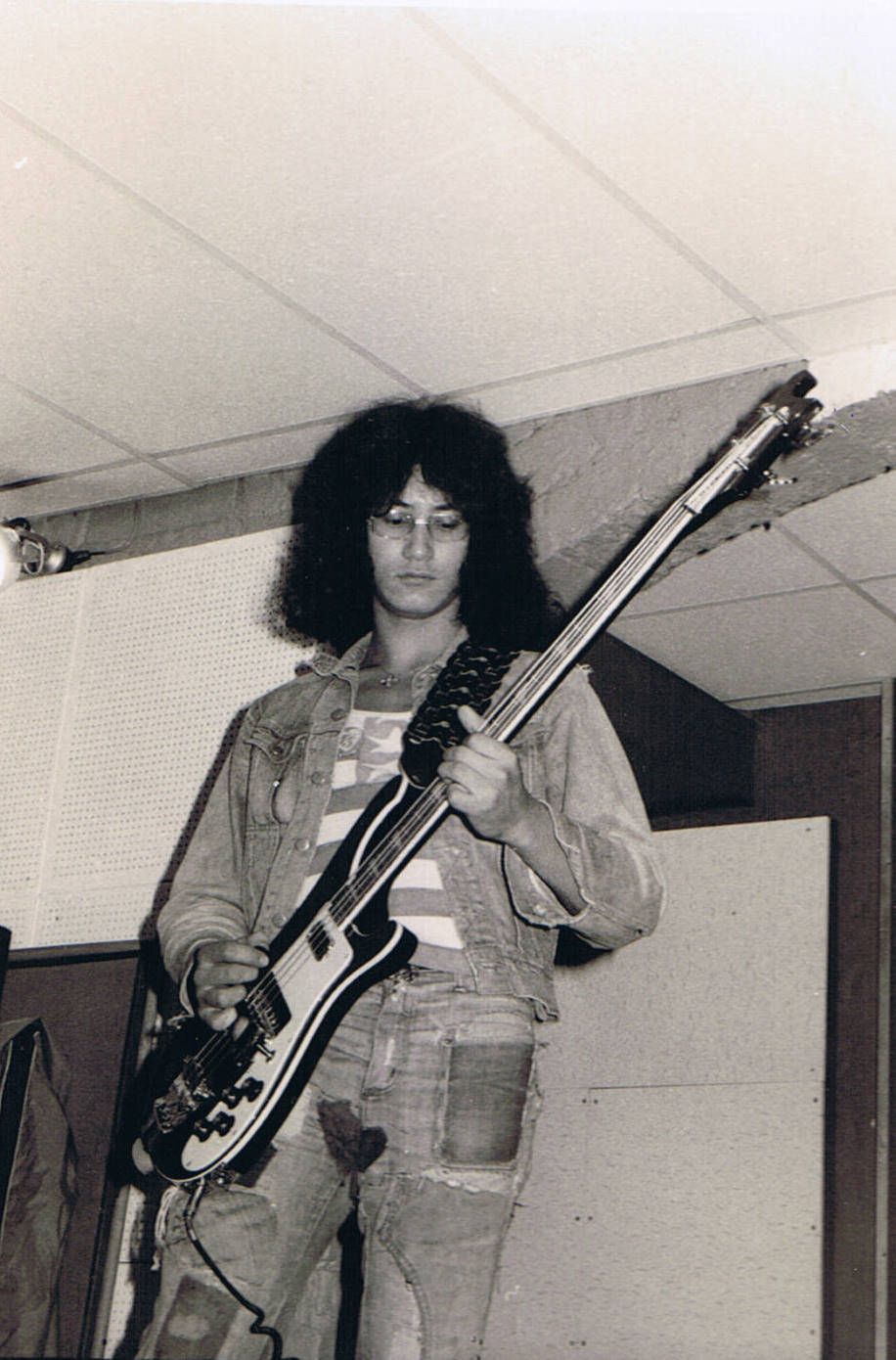
Where was the ‘Assasin’ LP recorded? How long did the sessions last? Would you share some recollections from the sessions? How pleased were you with the finished product?
It was recorded in a small studio in the city of Chester called Abbot Sound Studios and consisted of two – two track tape recorders for recording. It was a nice place with decent facilities for small studio at the time. On the way through Chester trying to find the place we stopped a police motorcycle outrider to ask him the way, he did better than that and rode in front of our van giving us a police escort all the way there. To us we thought this is it! We have arrived. As I said earlier all the tracks were recoded with the band in the studio playing live together, only vocals, guitar and keyboard solo’s were added later. The recordings were done in two day’s over a weekend and a four hour session given over to mixing a few nights later to which I was unable to attend as I was working a night shift at the Ford Car Plant in Halewood, Liverpool. On the track ‘Time Slips By’ I was surprised to be asked to try a keyboard solo in the song. I went back into the booth and just made a solo up on the spot and that first and only take is what you hear. I had to learn it afterwards for our live gigs. The song ‘Bad Omen’ was given a nice touch as Owen sang the counterlines across himself.
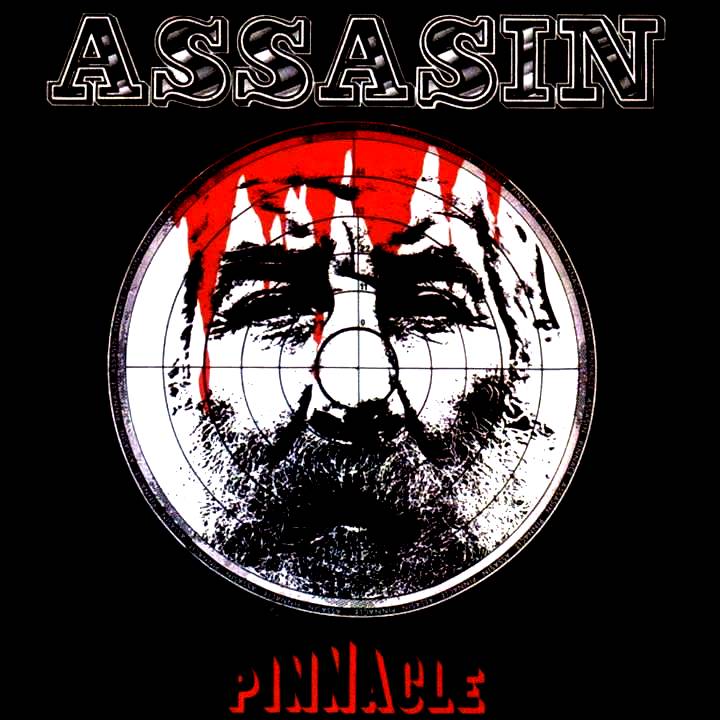
I was delighted at the finished product apart from the placing of the tracks – ‘Time Slips By’ and – ‘Cyborg’ side by side on side one. But having made a record, wow it was every musicians dream then I think, yes I loved it, still do although with more experience the cutting could have been better. I know Owen McCann was not happy about some of his performance and wanted to re-do some of them but we were on the clock for time and money so could not let him and at the time we were lost in the moment and thought everything was alright and he was being too critical, but on reflection he was right I think.
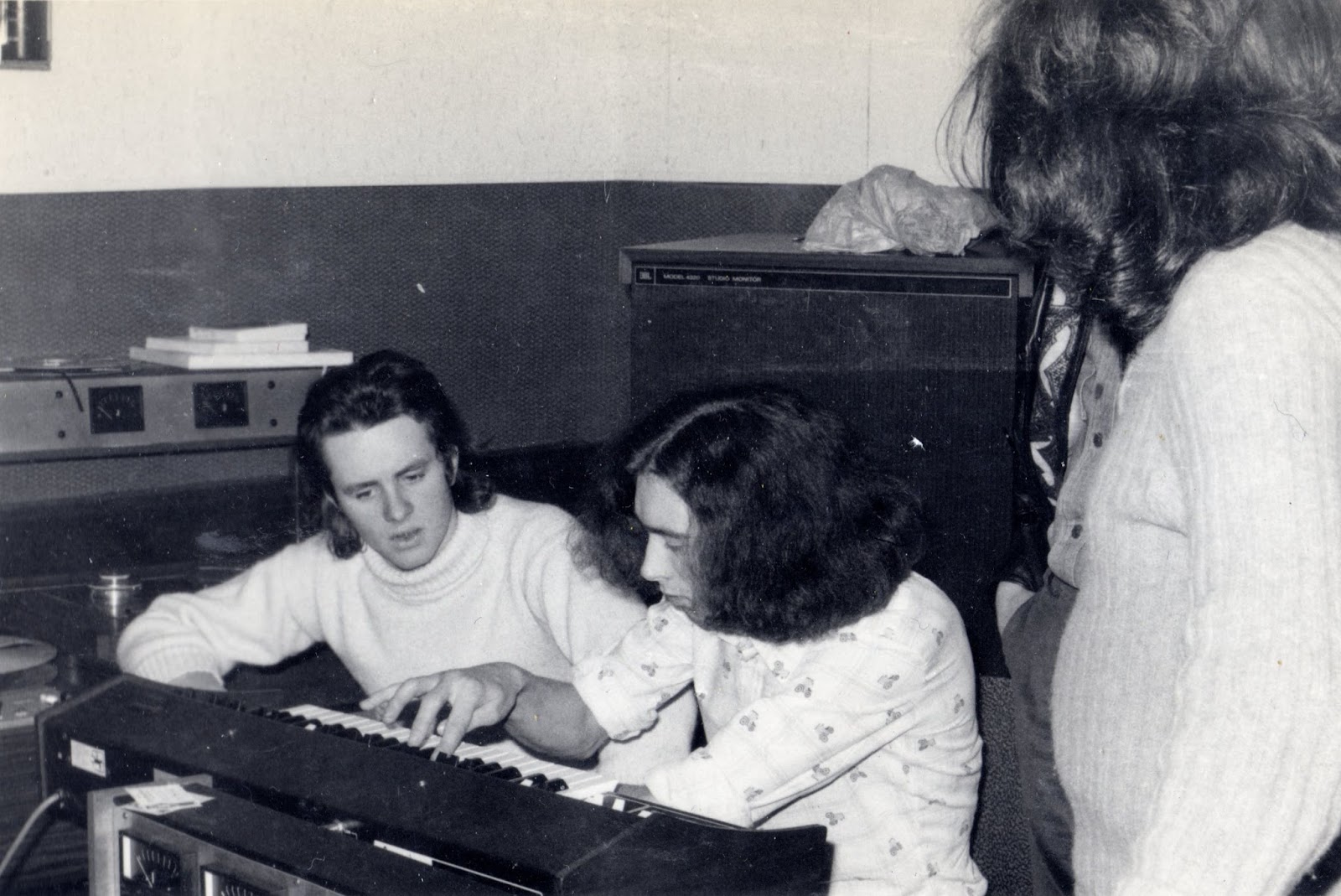
How many copies were pressed?
The first pressing in 1974 came out on Stagg Music (HP12S) and 1000 were pressed. The second pressing to my knowledge came out on German label, Little Wing Of Refugees in around 1990 (LW2007) don’t know how many were pressed. The First Pinnacle compact disc of the ‘Assassin’ album was released with some extra tracks added from a live recording of a rehearsal from circa 1975. The vocals on the original recording from a cassette were pretty much inaudible. The extra tracks were ‘The Forest’, ‘Pendulum’, ‘Parlour Maid’ and ‘Love Is Lost’. Released in 1994 with the ‘Assassin’ album in full On Kissing Spell (KSCD9490) and re-titled ‘Cyborg Assassin’. I think 1000 were initially made. Over the years I have noticed other ‘Assassin’ recordings that I believe are unofficial releases. I certainly had no knowledge of there release till I saw them for sale on Amazon. The Original ‘Assassin’ LP on ZEN Records (ZN-003) and also on compact disc (Number Not Known), The Original ‘Assassin’ album on CD Sunrise (SR40303012), plus a later Unofficial release from the new owners of Kissing Spell ‘Cyborg Assassin’ was rereleased in April 12th 2004. Same Number (KSCD9409). ‘Assasin’ CD Sleuth Records (SLLP2001) released 2013 ‘Cyborg Assassin’ CD Si Wan Records (SRMC4027) released 1995. I have also seen an advert for the ‘Assassin’ LP with a white centre piece on the record I could not make out the label. So with all these unofficial releases I really don’t mind the full album being available for free on YouTube.
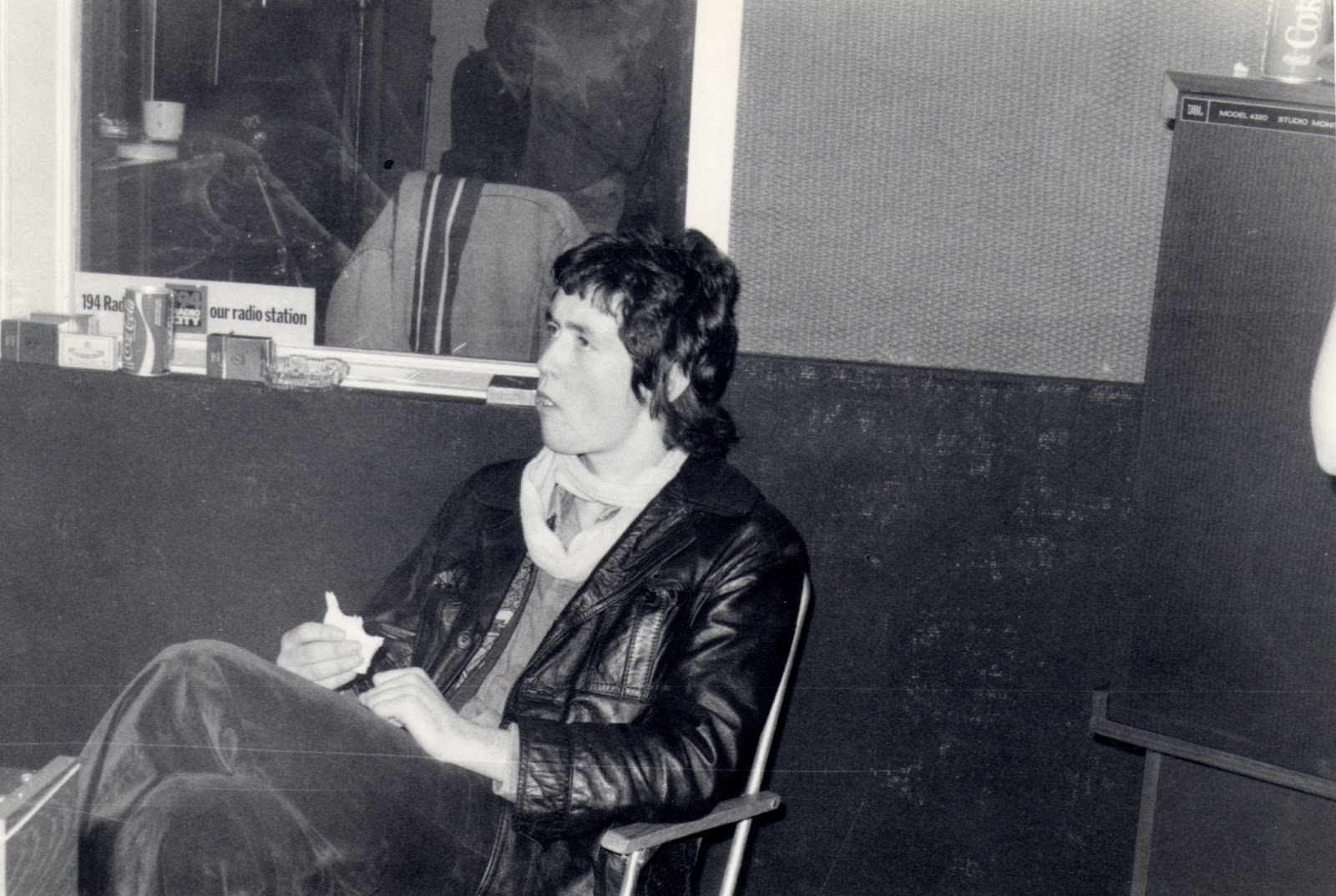
What can you tell us about cover artwork?
The misspelling of ‘Assassin’ on the album cover was down to a printing error and left like that by the record label Stagg Music. The face pictured between the gun sights is a tramp we came across during our photo session, who the photographer paid £10 pounds to pose for the shot. I have seen him over the years in Liverpool city centre pretending to play a cardboard guitar and going “plink a plink a plink” to make a guitar sound, naturally he was known around the town as Plinky Plink. I believe his name to be Jackson Nesbitt who has a bit of a following on the internet now. All photography for the album was done by Ken Travers. Original ‘Assassin’ LP (The Little Wing Of Refugees, Sleeve Concept: Refugees, Realisation (Photo): Peter A. Doring LP housed in a purple sleeve accompanied with a picture postcard and poster of the band. On the cover is pictured a firing squad wall in green with a recently shot persons hand slithering down the bullet holed wall). Kissing Spell CD changes title to ‘Cyborg Assassin’ similar front image of man in gun sights. The inside cover open’s out to reveal the words to all the songs on the original ‘Assasin’ album 1-8. Differences in some of the unofficial releases. The serial number is missing top right and also top left and bottom right logos are missing. The Zen Records abum release. There are other differences in other releases such as album cover is not gloss laminated. The word Pinnacle in plain white on others.
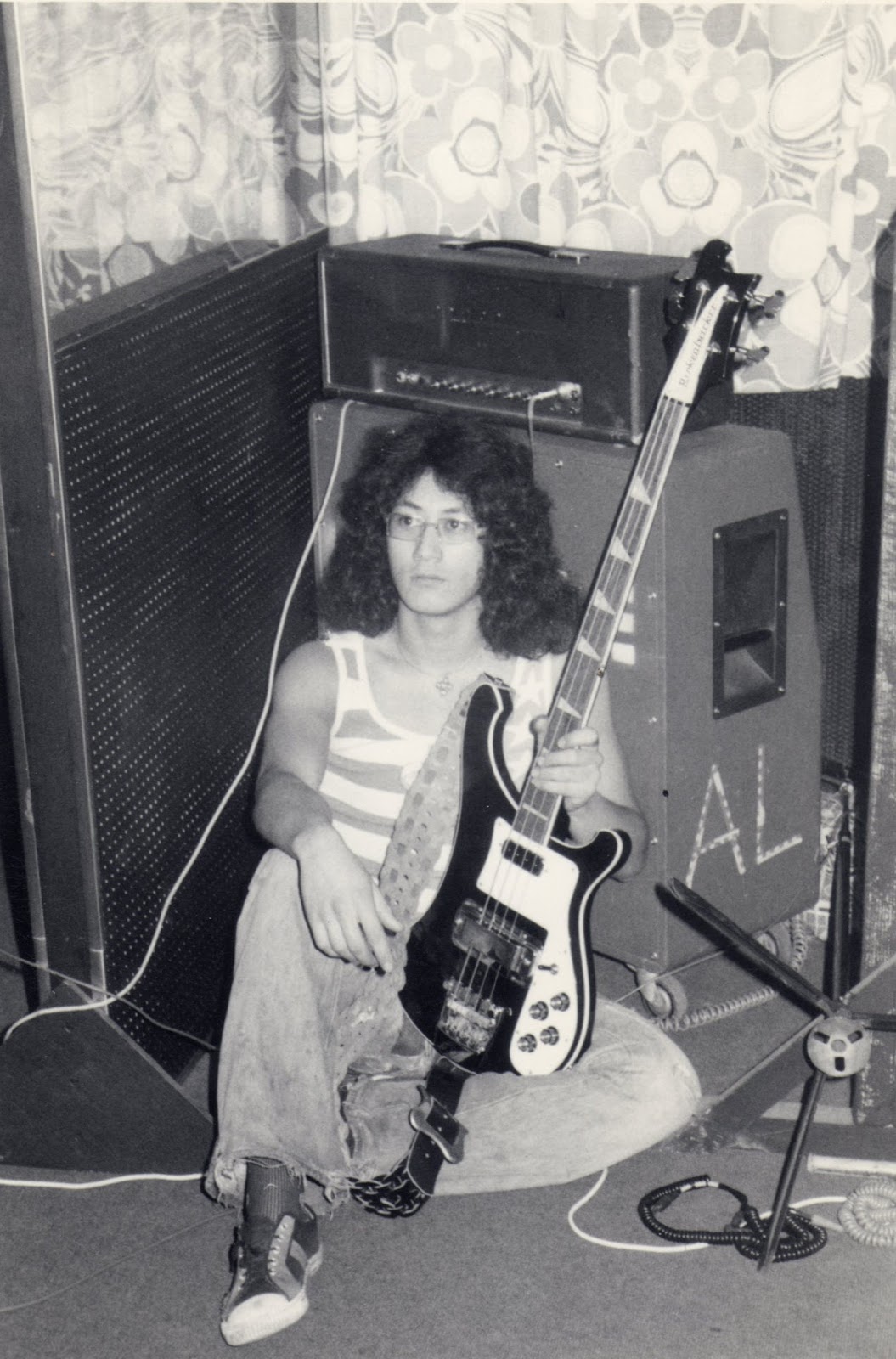
Would you say ‘Assasin’ is a concept album?
Not in the slightest, it is purely music made by inexperienced young musicians exploring the musical and lyrical ideas for good original rock music, the opinion of good is down as always to the listening audience. i.e.: some like it others don’t.
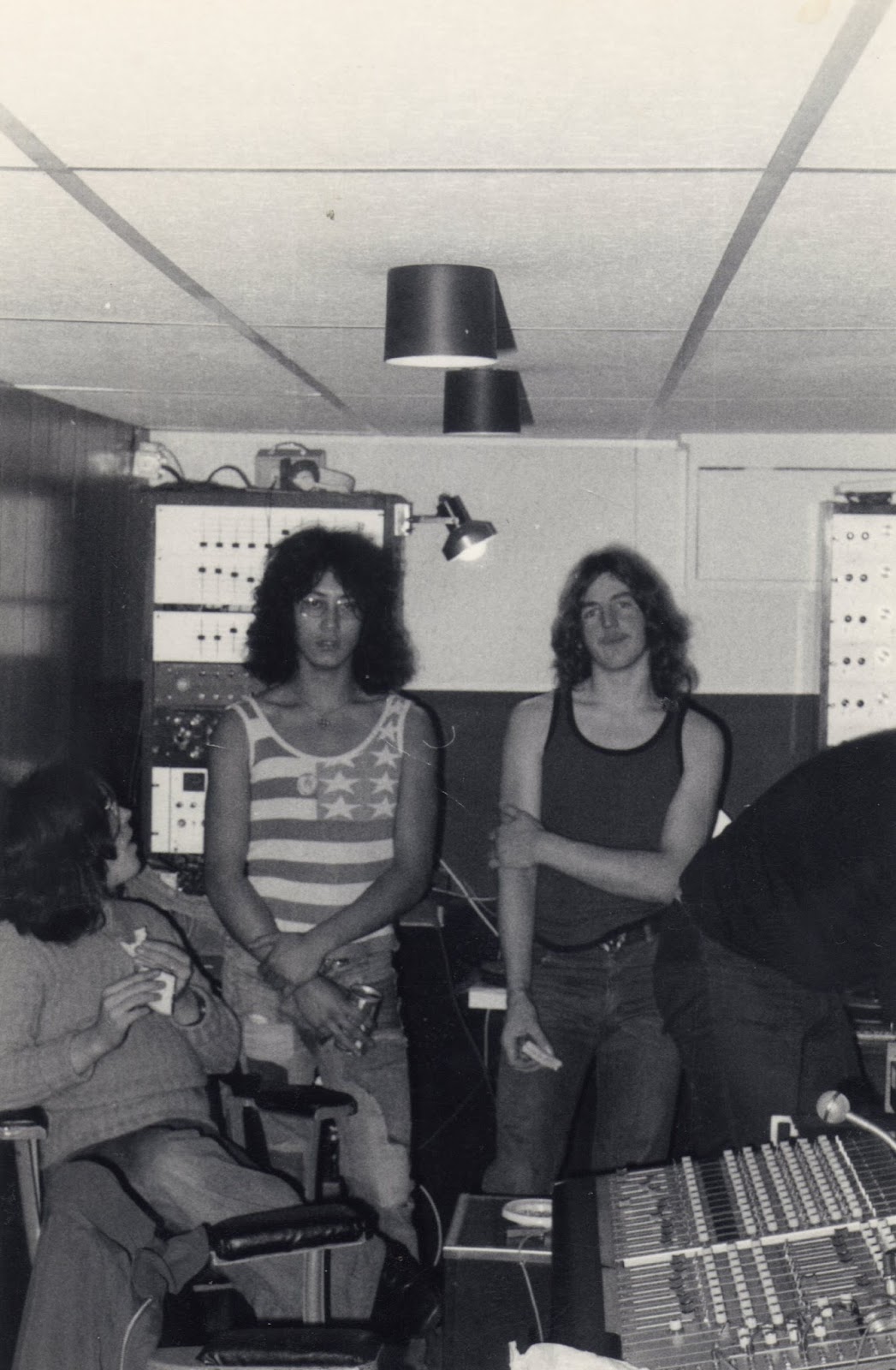
Would you share your insight on the albums’ tracks?
A1 ‘Assassin’ – ‘Assassin’ is about an insane hitman who glories in the fear he creates with the victims, creating terror in them as he stalks them before finally taking aim for the killing shot and loving all the blood and mess of splattered body he leaves behind.
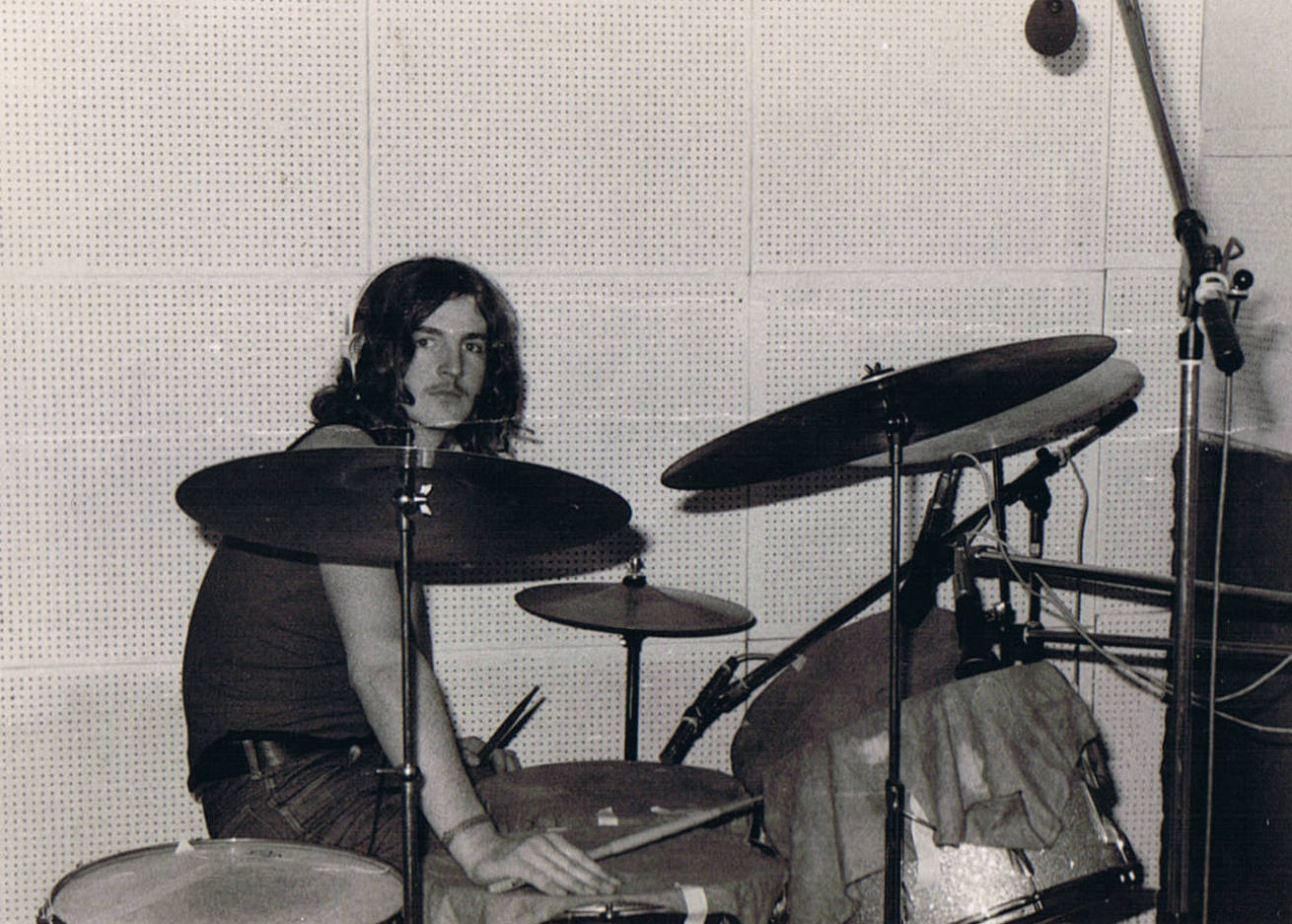
A2 ‘Time Slips By’ – Is about time and life and about living for today, because you may think you have time but it goes by ever so quickly, and before you know it age catches up with you and you are left only with memories or what if’s.
A3 ‘Cyborg’ – It’s the cyborg man machine, will machines take over from man the does the cyborg become the guardian of the world because man just destroys, will it be too late for man?
A4 ‘Astral Traveller’ – About a time lord who travels through the space and time continuum experiencing all that the universe can teach, and seeing and befriending other beings not of human form.
B1 ‘The Chase’ – is a sort of protest about all blood sports not just fox-hunting, coming from a fox’s view detailing his fear of what will probably happen to him as he recalls the fear of being chased by horse, hound and human for sport.
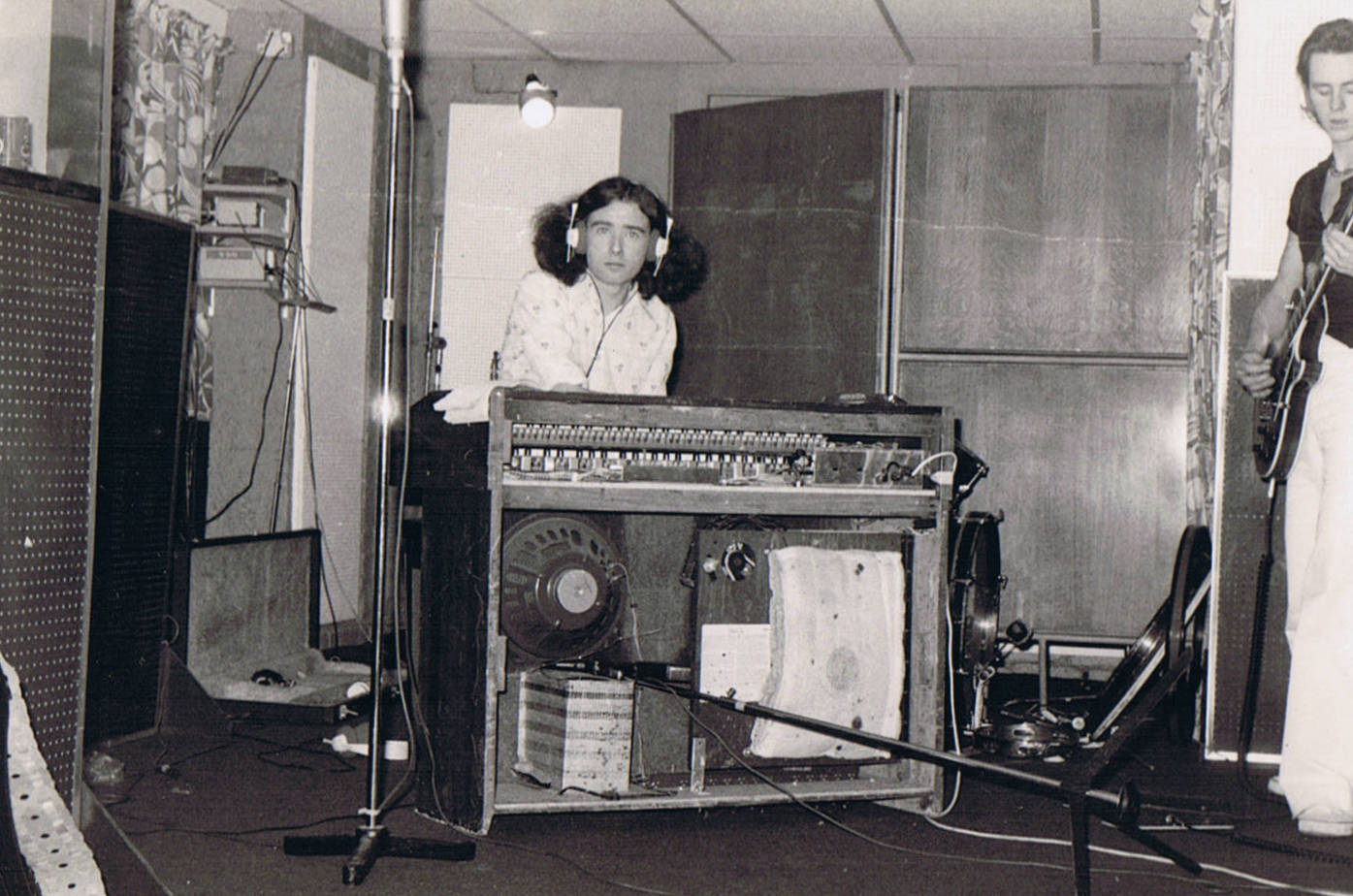
B2 ‘Thumbscrew’ – About loosing that one person that means the world to you and then getting them back again forever and always’s.
B3 ‘The Ripper’ – Just about Jack The Ripper. A Rose Mylett was killed around this time in London but was ruled out as a Ripper victim.
B4 ‘Bad Omen’ – About the pain and obsession of unremitting unrequited love.
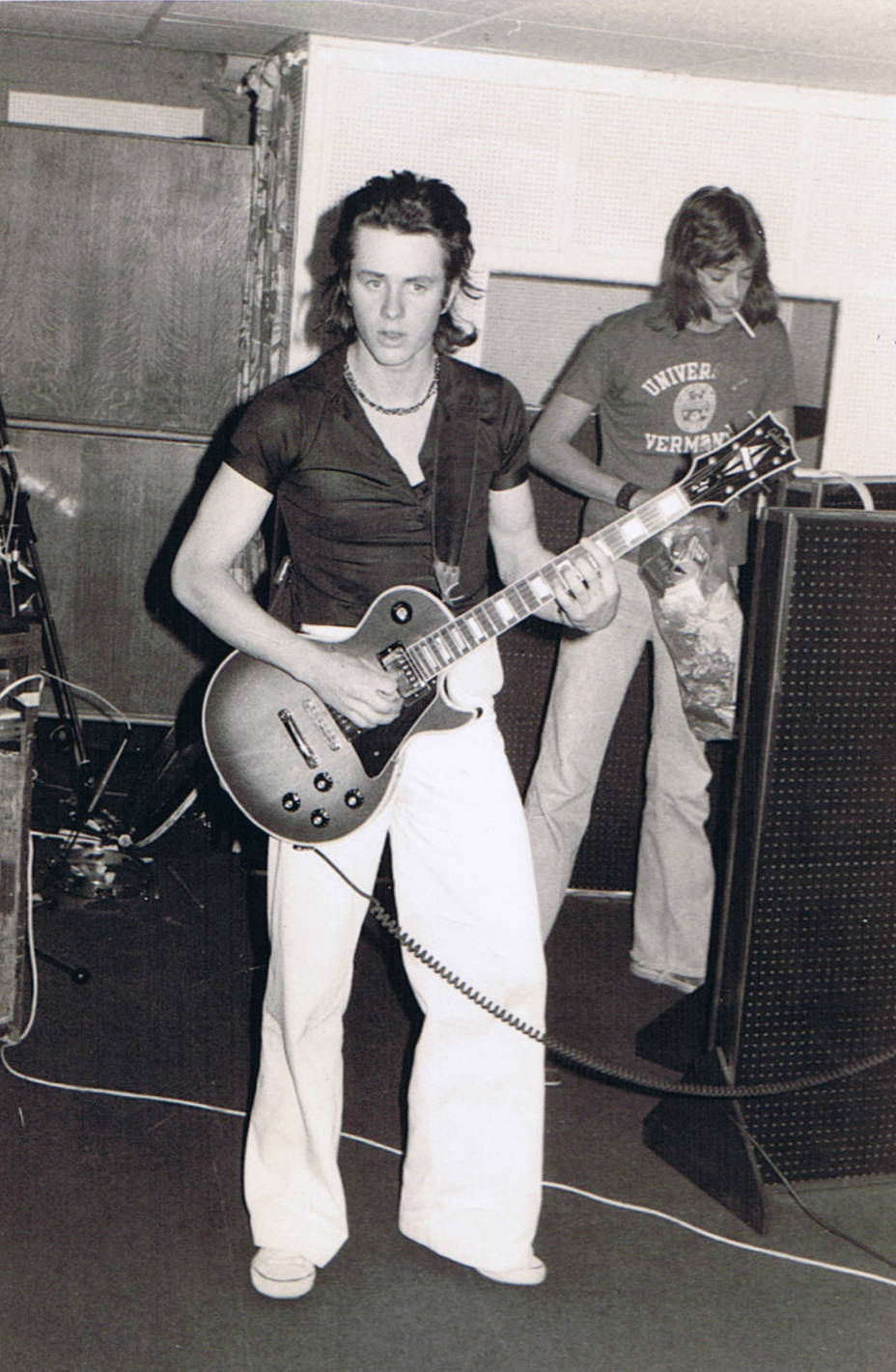
Would you discuss some of your most memorable moments in your music career?
With regard to Pinnacle the first few weeks of writing and creating the music, and going into the studio and making a record. That whole experience. Then taking that music out and playing it and seeing that the audience appreciated our work, also the great feeling you get when playing live and knowing the music sounds tight and is rocking. Wonderful. Going on a small tour of Holland being the first time ever I had left England. Re-joining up with Paul Thomas late 1976 to play bass guitar in a sudo Rock’n’Roll showband called Bobby Sox and the Prizeguys doing a shadows type routine.
Then in 1986 I was playing bass guitar for another Rock’n’Roll showband called the Sensations. We did many live local radio shows and appeared on a TV talent show called New Faces Of 86. The experience of recording and being on TV was a good moment plus we spent two days down in Birmingham in a top class hotel all expenses paid.
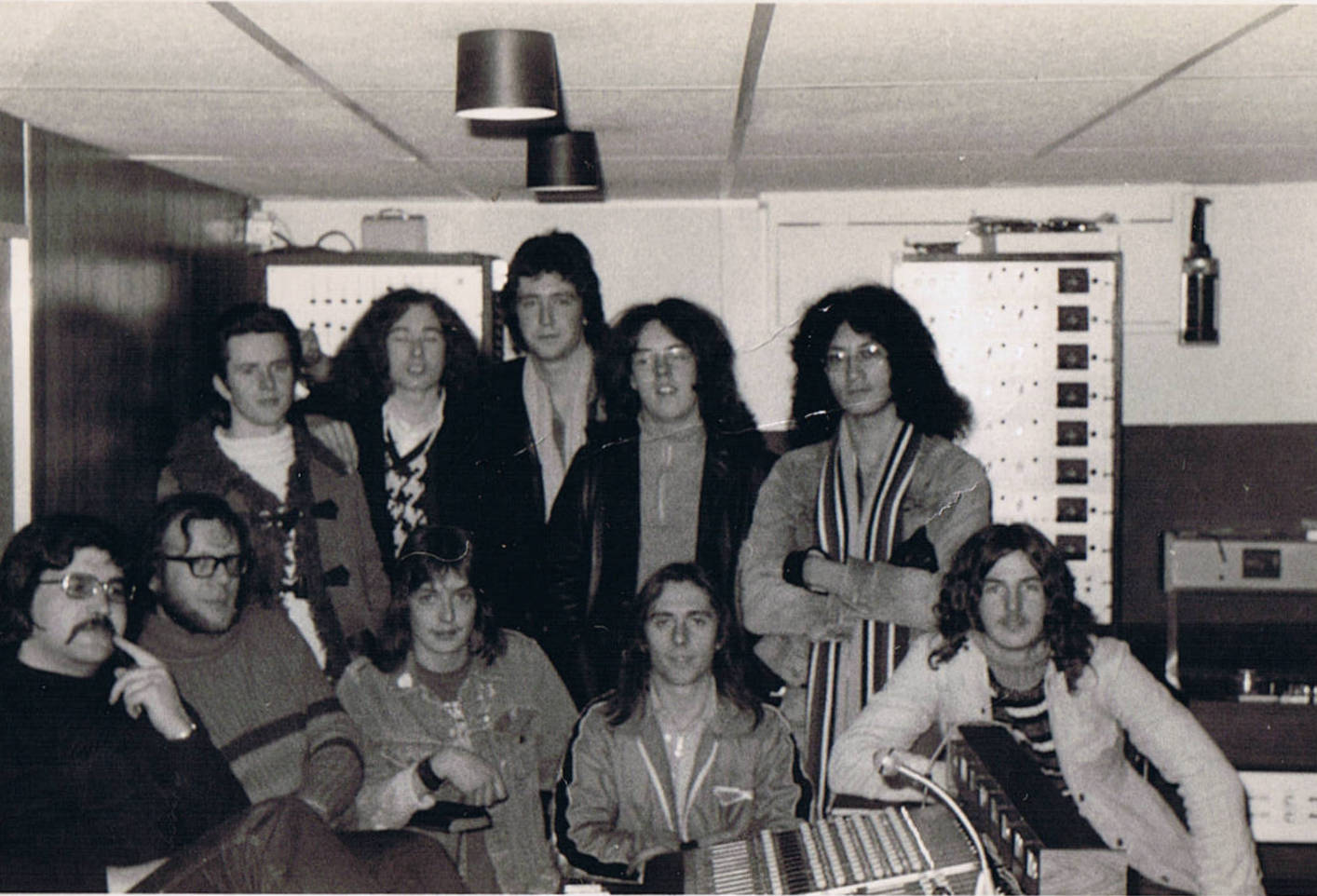
1992 saw me playing bass guitar with The Hooley’s Paul Thomas was with them playing Tenor banjo and mandolin playing every week at the famous Flannagans Apple in Mathew street Liverpool city centre. The band played traditional Irish music in the style of the Pogues. The place was always packed and not much room to move. During a break traditional Irish music was blasted from the house system. There was an elderly lady who took pride in being able to do high leg kicks whilst doing her dancing and with very little room and the stage being of the low type you find in bars, then dancing of any kind was limited, and a bit dangerous if you got in front of her. She kicks her leg out this one time and somehow caught Pauls Mandola and sent it flying and broke the neck clean in two pieces.
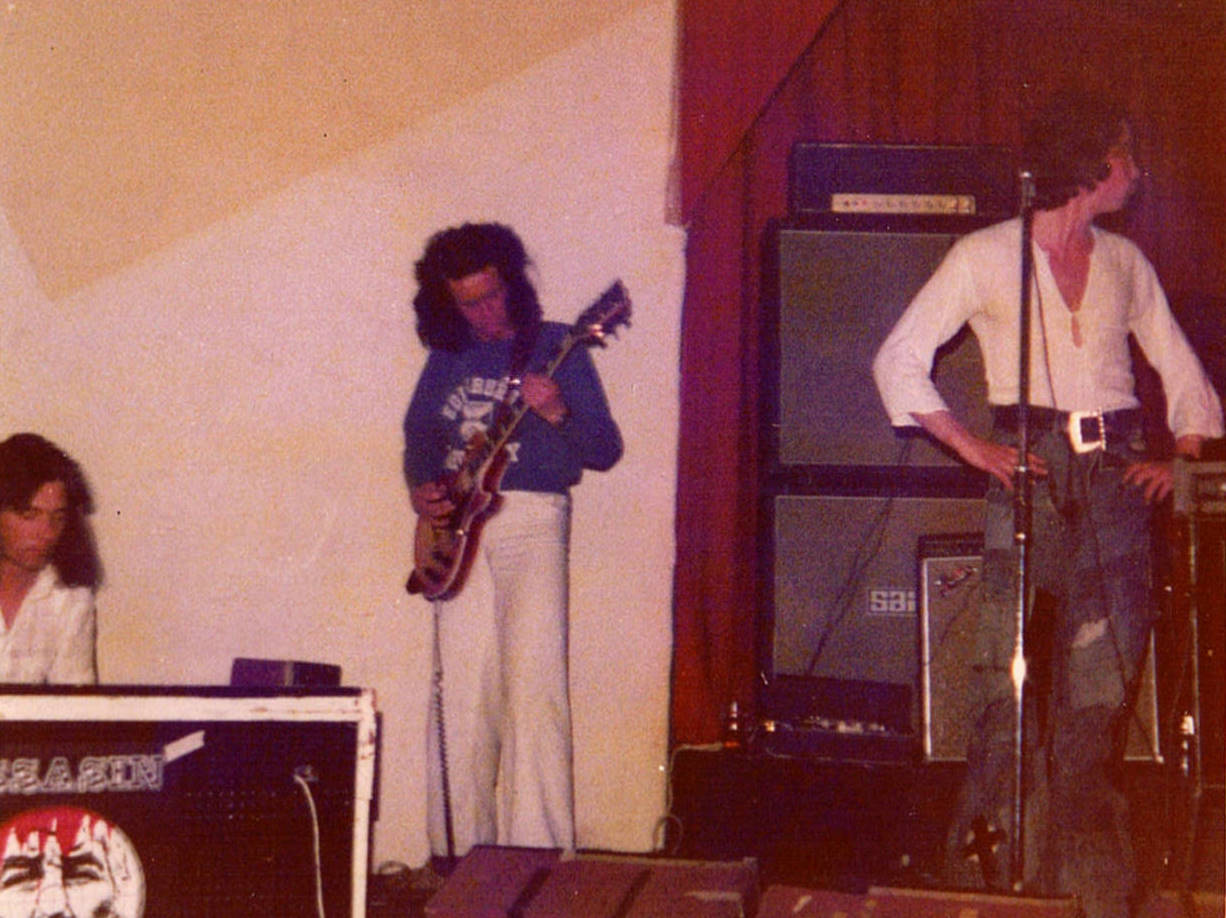
How about gigs?
We played the Liverpool Stadium (a boxing arena), for us a great honour as all the main rock bands of the time played there, it was a show of up and coming local bands, Supercharge, Nutz and Pinnacle. Being bottom of the bill we had to set up last… Well, looking at the stage when in the audience as I had done for many shows, you would think the stage was massive… What a disappointment there was hardly any room at all for us and to top that I had a very large monitor blasting organ in my ears, which sent them ringing for hour afterwards. And worse still we only did twenty minutes which went by in a flash. From the stage we saw a lit wire sparkler fly through the air and stick in a persons head still sparkling away, funny really as it was March not November. Anyway a huge let down of a show from my point of view.
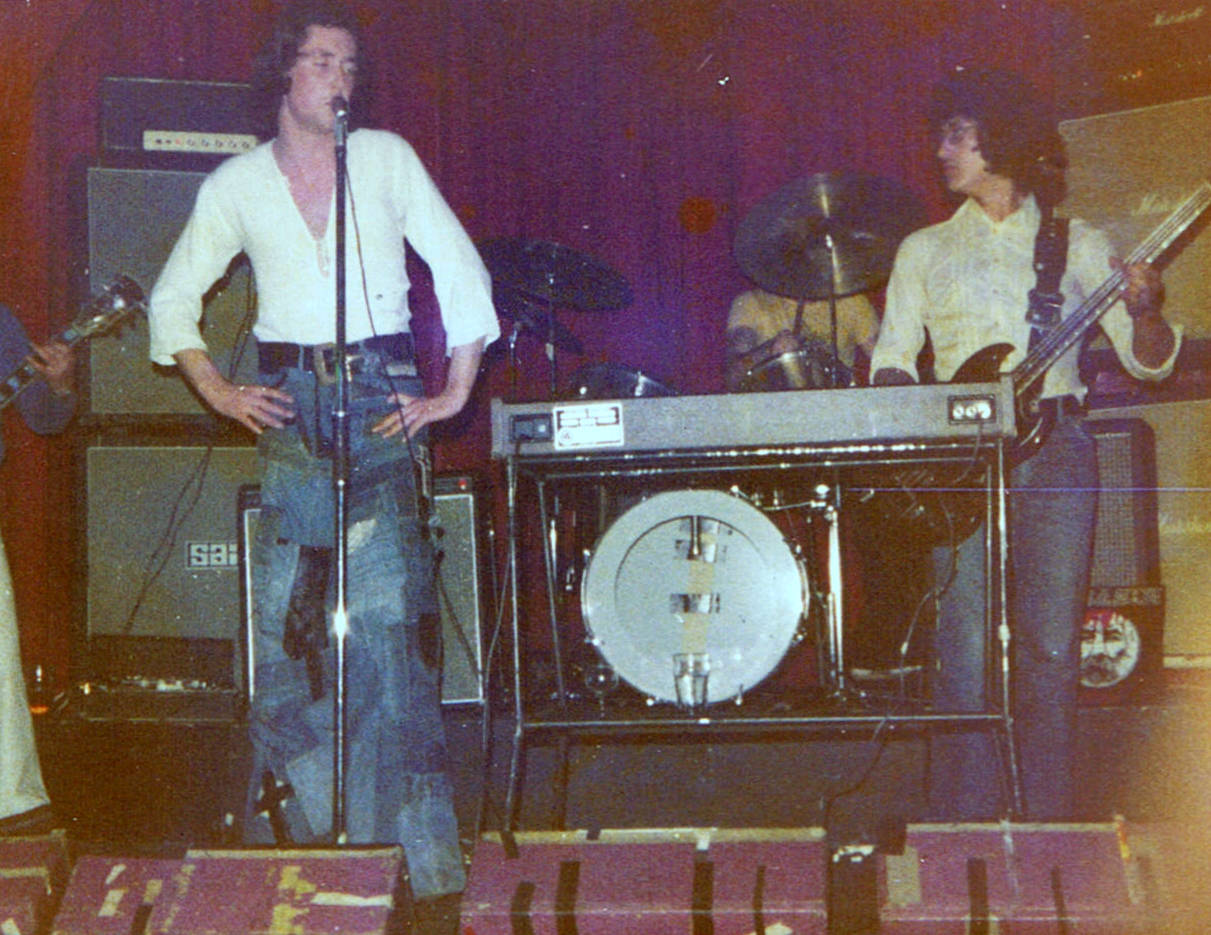
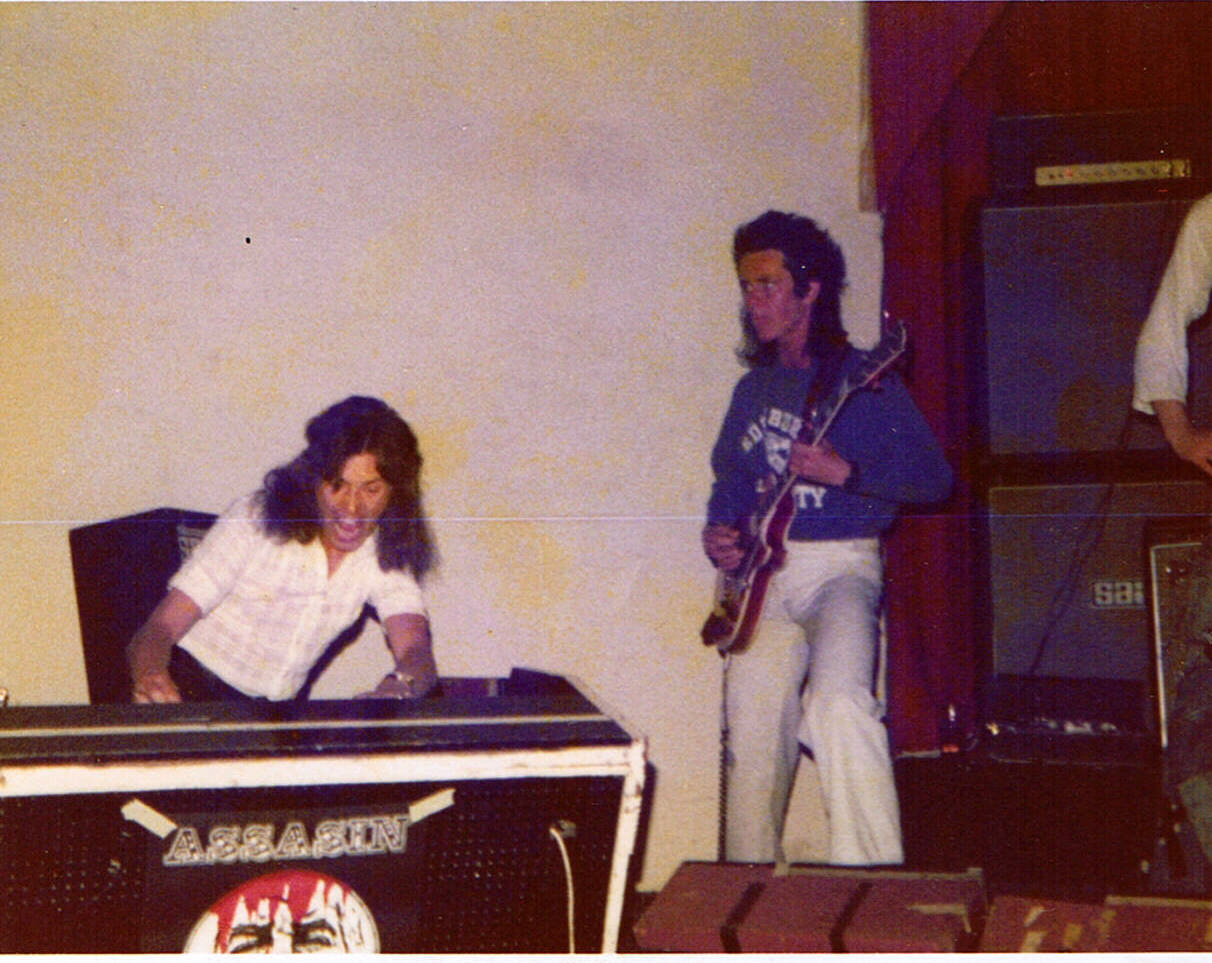
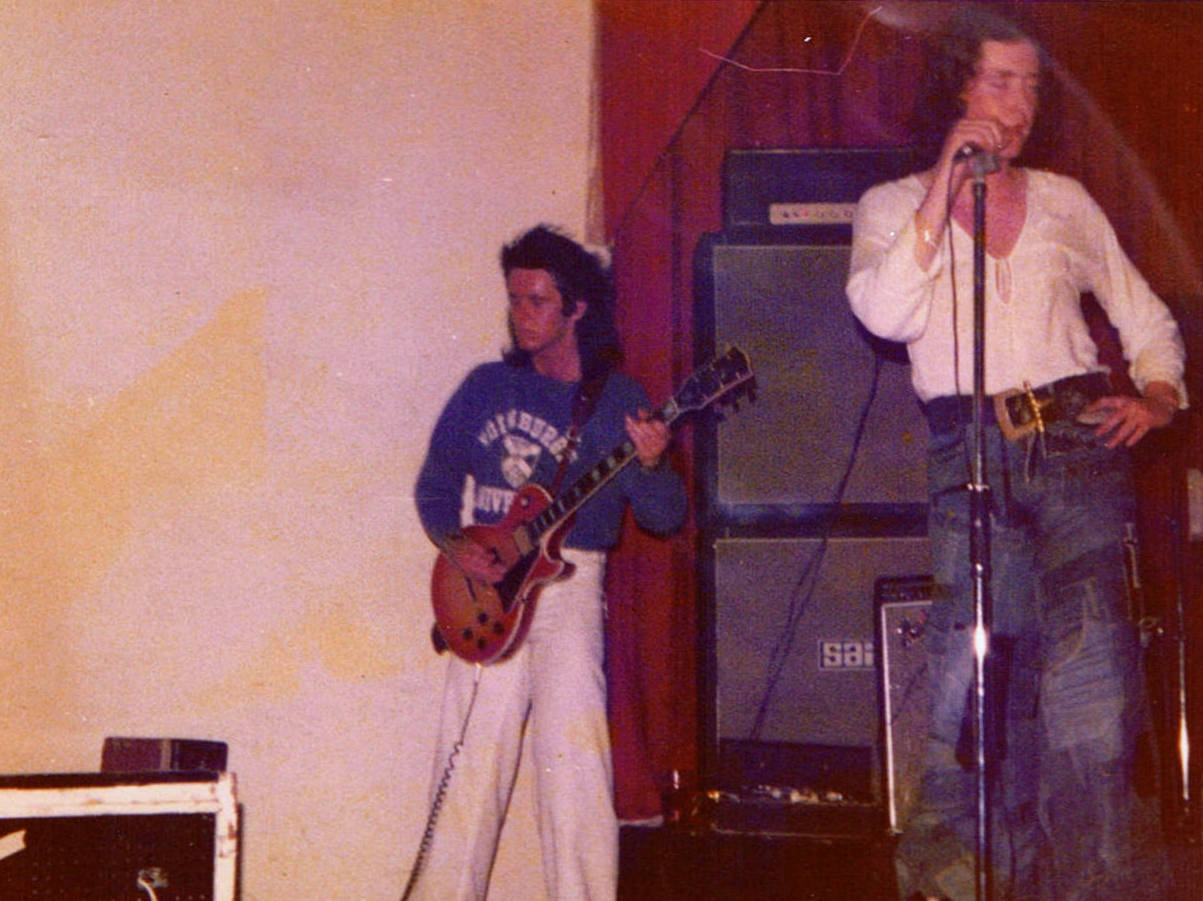
Did psychoactive drugs played any role?
To quote Jimi Hendrix from his song ‘EXP’ of the album ‘Axis: Bold as Love’, “You just can’t believe everything you see and hear can you?” No not at all – I guess we just have weird minds. Pinnacle were great drinkers, psychoactive substances were not our thing. The marketing of the ‘Cyborg Assassin’ CD on Kissing Spell was responsible I think for the story about booze and pills. When playing and song-writing a clear head is needed professional approach to what. Booze after the show –Oh yes! Plenty. So I’m sorry to explode the myth.
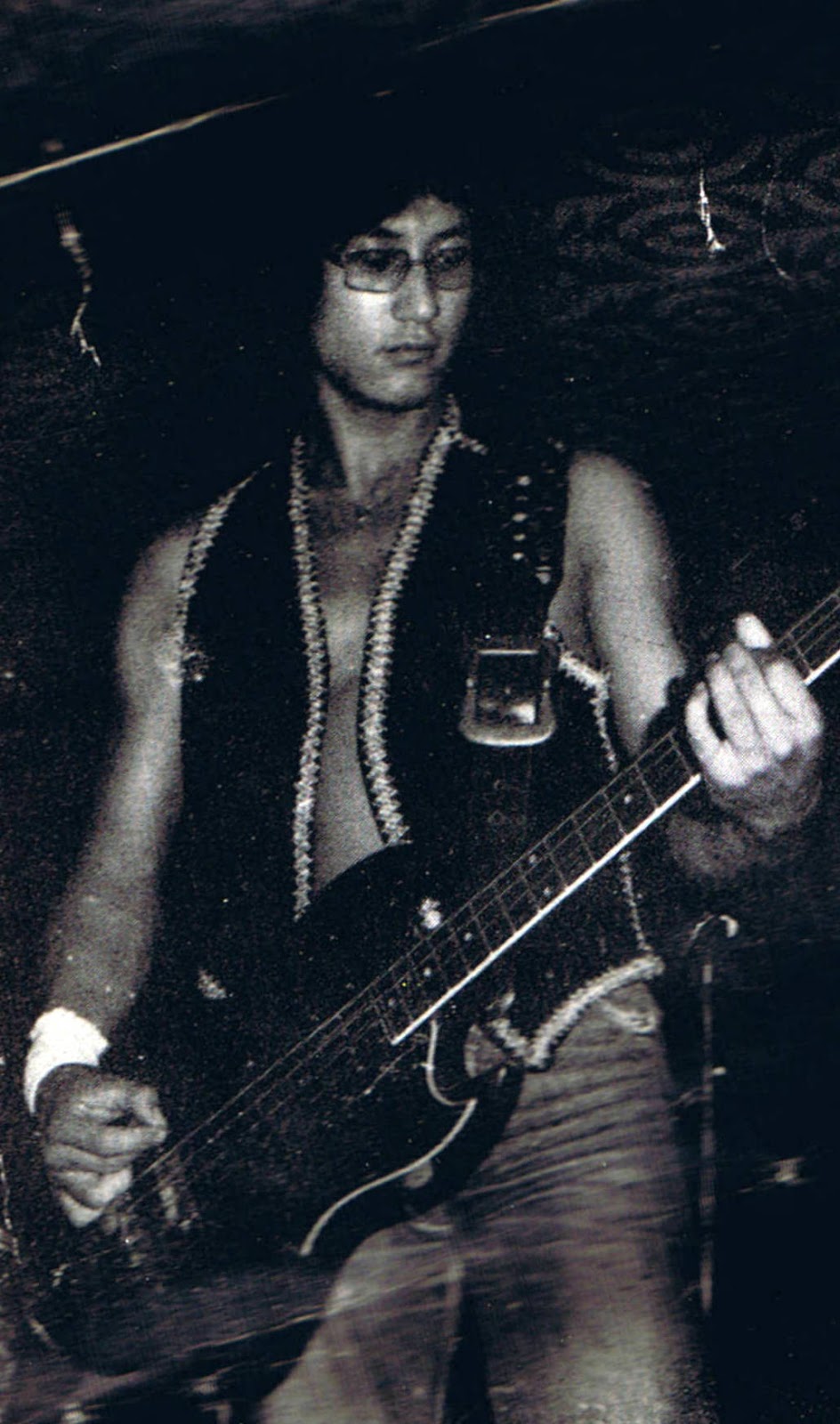
You probably shared many magic musical moments. Would you describe your relationship. What was the dynamic between your song writing and playing?
I would describe my relationship with the band as good then later very strained and stressful (you know bands – it’s always something or usually someone depends whose turn it is). The song-writing aspect between Paul and myself and Owen was usually great, but as time went on things changed for me. We were going round in a circle from one gig to another.
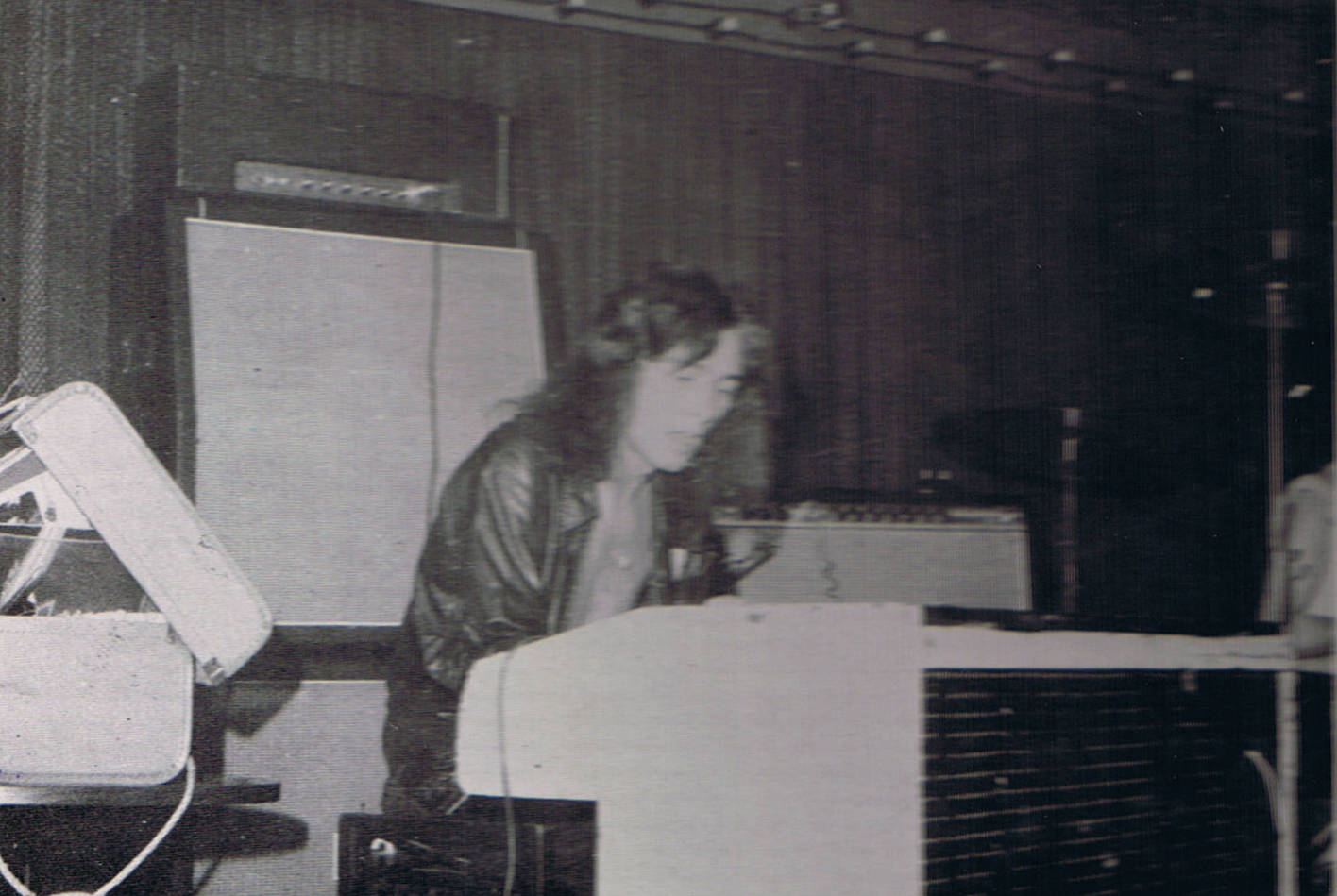
I was getting fed up of always having no money despite all the work. To top it I met a girl to whom I’m still married to so was no longer one of the boy’s and I just didn’t want to travel down on the bus to rehearse the same stuff endlessly with no career progression in sight. Because of my lack of dedication at this point Owen and Paul did some basic arrangements together, and I had to be taught the initial keyboard riffs from Owen (whom was as untrained as me and used even weirder keyboard fingerings than me).
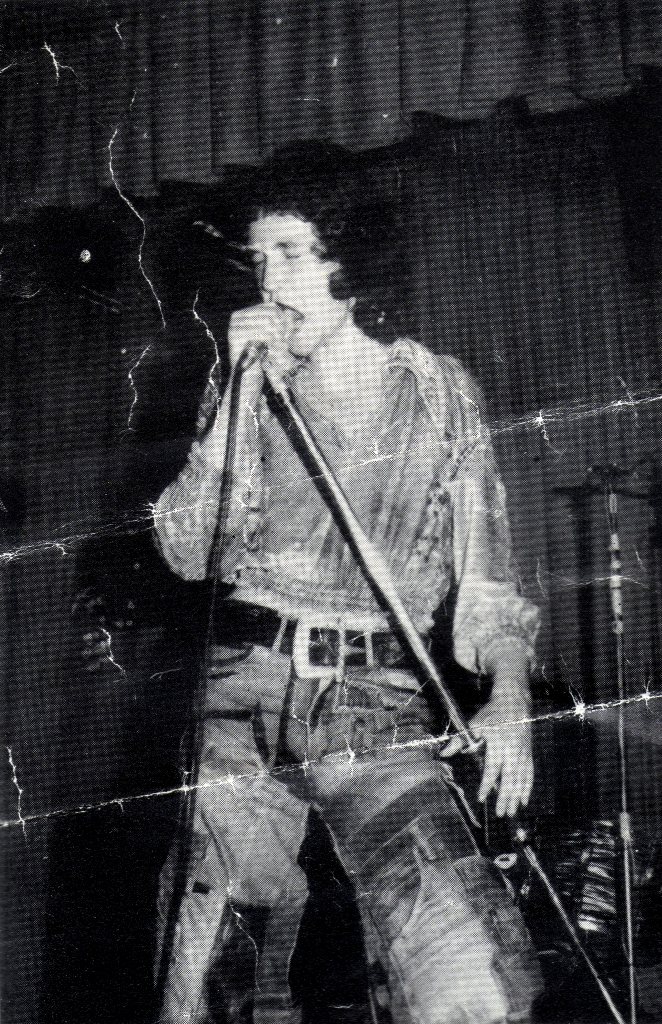
These songs became ‘The Forrest’ and ‘Lead And I’ll Follow’. The songs still needed some parts filled so my pride was left in tact. On the playing side I still struggled to play the keyboards with any confidence as I considered myself to be the weakest on my instrument having had no formal training of any kind.
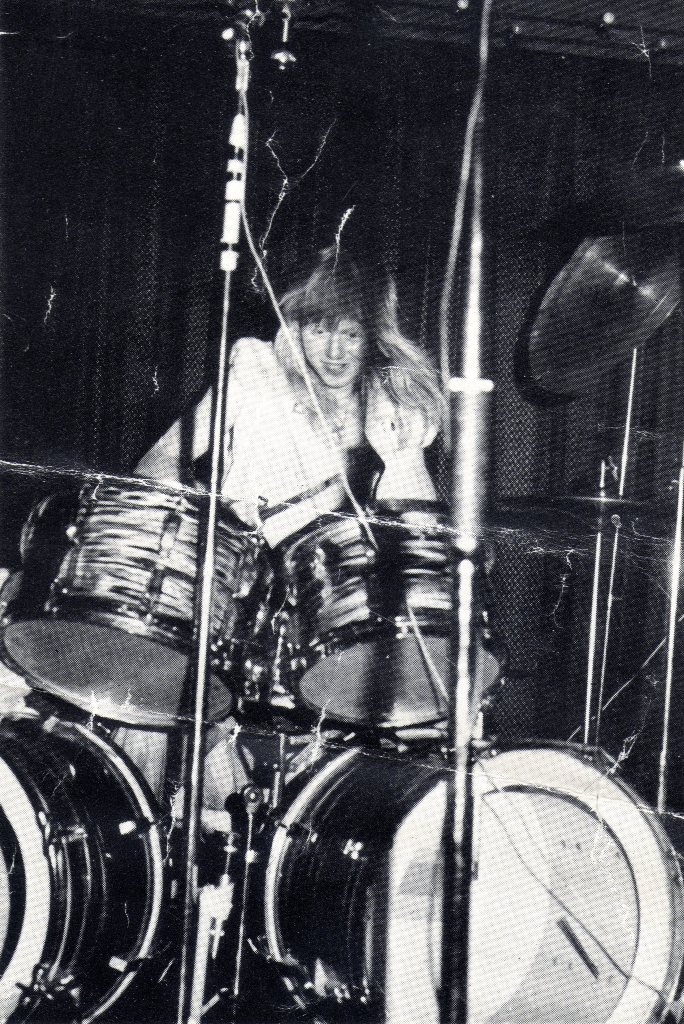
And I did find it stressful playing and keeping up the quality of music performance alongside such good players as Alan and Paul, something that’s never left me about playing keyboards. I have never had much of a break from performing in the last 43 years, but I have never played keyboards in a band since Pinnacle, despite getting formal piano training in year 2000.
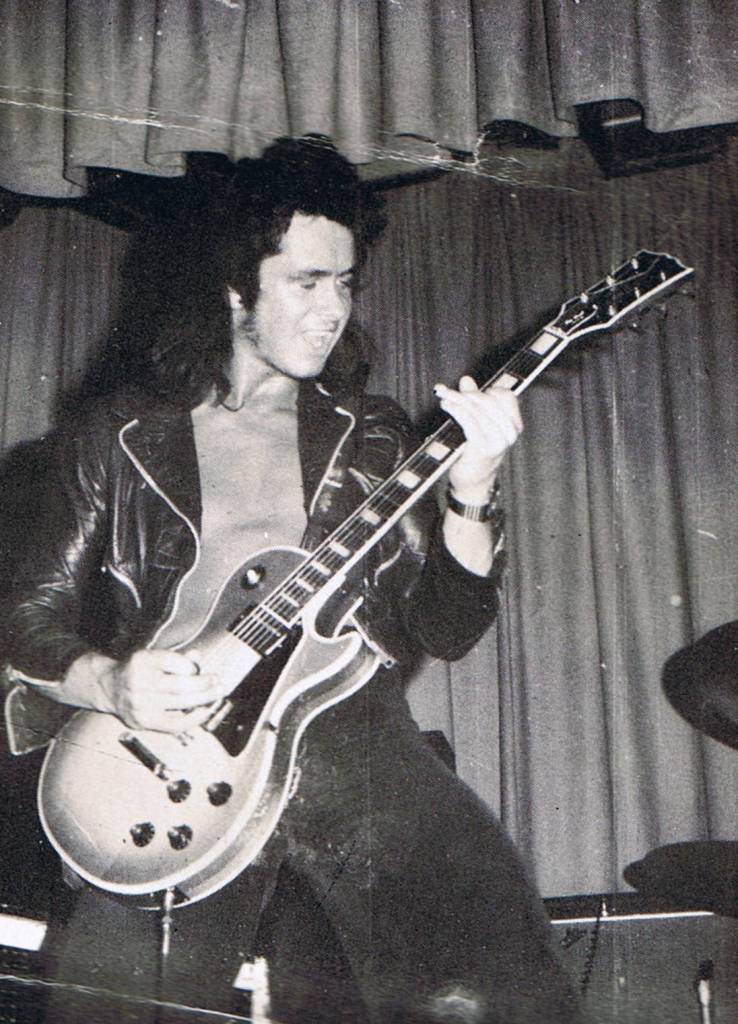
What currently occupies your life?
I am currently semi retired and a musician. I have a great interest in what people call conspiracy theories and read a great deal of literature to try to sort the wheat from the chaff. Over the years I have taught myself to play Mandolin, five string banjo and ukulele and together with playing piano and general house and garden maintenance I keep myself busy.
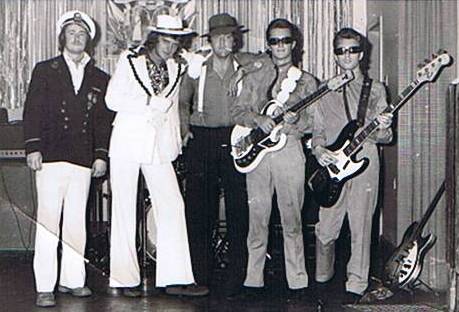
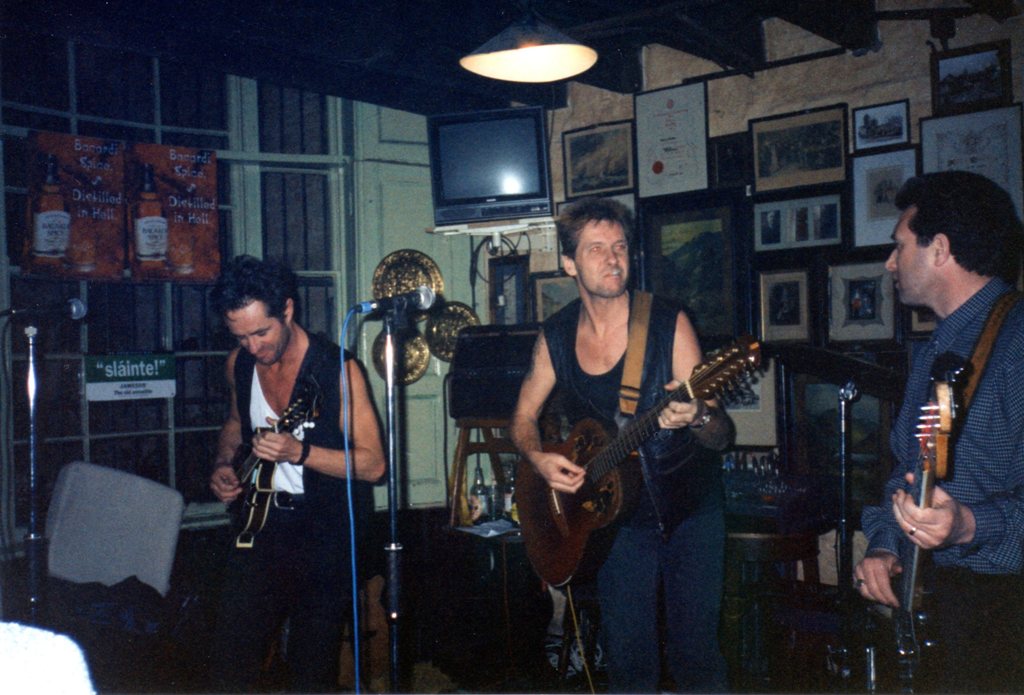
So you’re still very active…
I’m a bass player and backing vocalist in a duo called Sh-Boom with my long time friend Stewart Gedling. Producing backing tracks for our act takes up some my time as well, as we make our own tracks, if we do buy the odd one, we re-engineer them taking out stuff and changing things around to suit our own style. We would have preferred a band but it’s just not viable these days and the gigs for a band are thin on the ground, due mainly to cost. The way the tracks are re- engineered it feels like playing in a band and not like two guitars playing to a backing track, so we are very happy with the result and having a ball at the gigs. To quote from our Facebook Page. Sh-Boom Duo are an act featuring sing-a-long dance music of the fifties and sixties at it’s finest, laced with humour and friendly banter. With backing tracks custom made to their own style to give as authentic a sound as possible Sh-Boom are a dead on tribute to the 50’s and 60’s golden era of music. We play most weekends in clubs around the Northwest of England so I’m still rockin at sixty one.
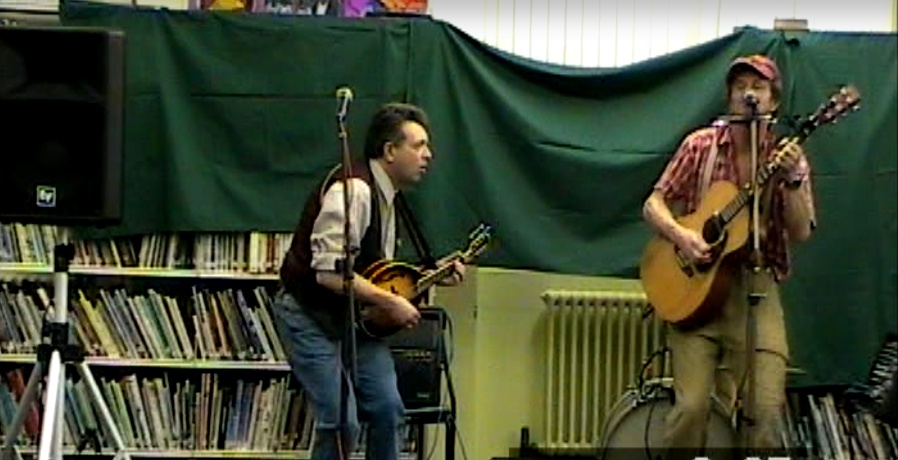
Thank you very much. Last word is yours.
And thank you Psychedelic Baby! Magazine for your interest in Pinnacle. Doing this interview has for me brought back many great memories. It’s 41 years since the release of the ‘Assasin’ album on vinyl and it seems to have been traded and produced continually since that time. It is unfortunate for the participating musicians that little monetary reward has passed our way in that time due to piracy or back door deals, and most of the band had to go back to a normal job to earn a living rather than having the financial support to continue as professional musicians.
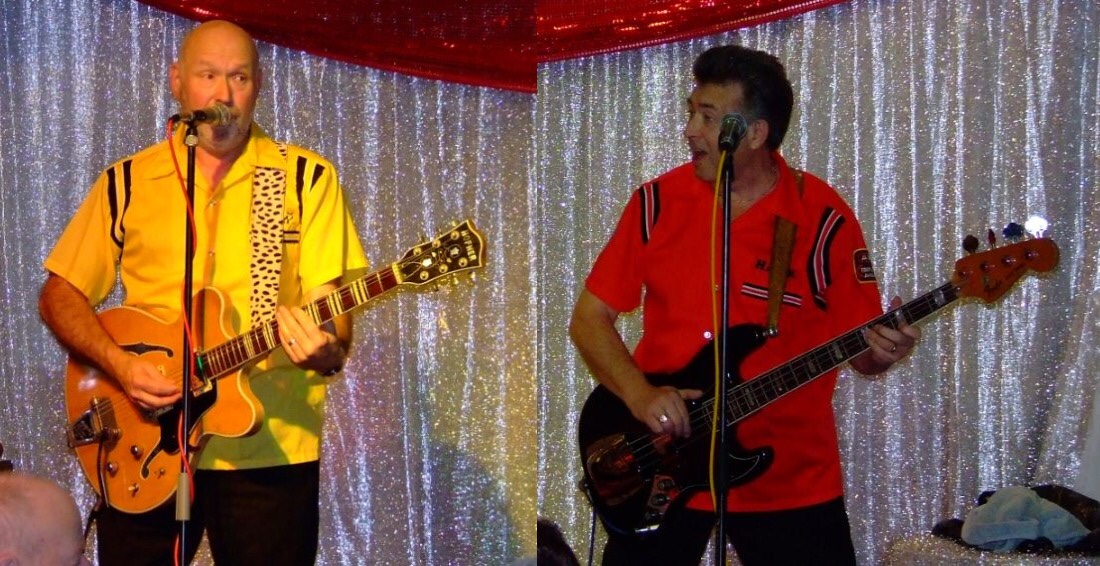
That said I am continually overwhelmed by the interest shown about Pinnacle around the world many whom were not even born in 1974, and I would like to give a big thank you to all those people who bought our music or liked our music so much that they took their time to make their own little video for YouTube… It seems surreal sometimes to think that video, mp3, mp4, and compact disc and the internet were not around at the time the ‘Assasin ‘vinyl record was made. So once again a big thank you to everyone have a nice life.
Klemen Breznikar
Sh-Boom Duo Facebook

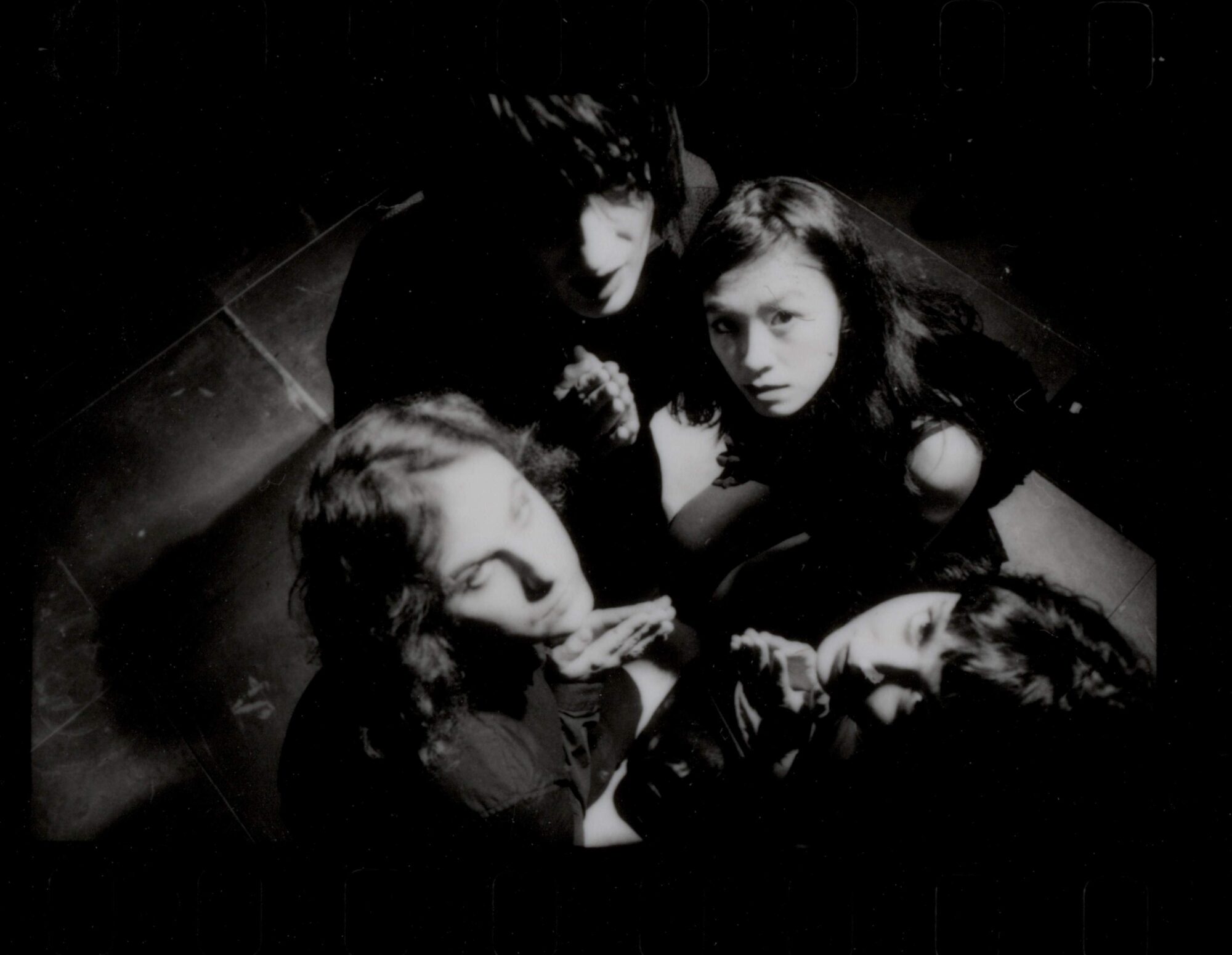
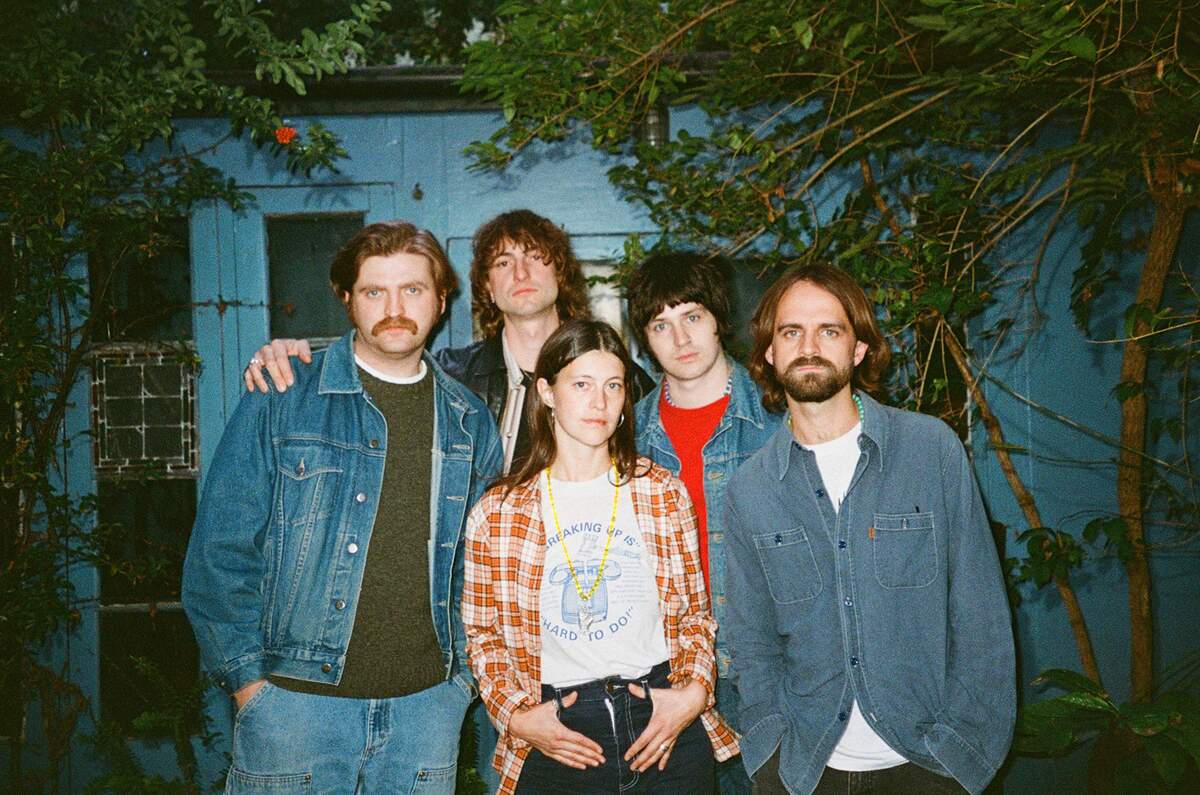

I used to follow Pinnacle around as my sister was dating Alan Lawrence in the mid 70’s . Brilliant band, great lads who always put on a fantastic live show. I remember Paul Thomas’s sister was quite a tailor and she used to make the lads patchwork denim jeans which looked really cool.
I’ve still got the original Pinnacle album and saw them at The Moonstone and the Stadium gig with Supercharge. Later saw Bobby Sox and the Prize Guys also at the Moonie. I then worked with Owen McCann for ten years who became a good friend. Great times.